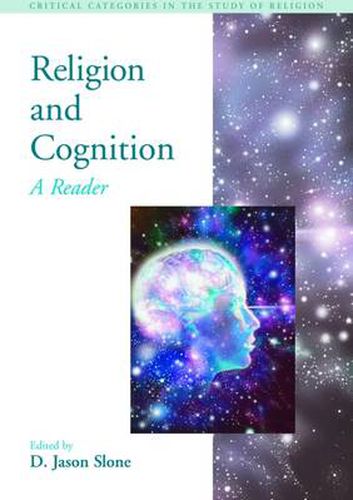Readings Newsletter
Become a Readings Member to make your shopping experience even easier.
Sign in or sign up for free!
You’re not far away from qualifying for FREE standard shipping within Australia
You’ve qualified for FREE standard shipping within Australia
The cart is loading…






This volume explores cognition in the study of religion–that is, the mental processes that govern religious belief and behavior across cultures and eras. The essays in the volume are scientific in nature and universal in scope. They address (a) the naturalistic meta-theoretical stances taken to epistemologically justify cognitive explanations of religion, (b) the theoretical models of cognition that are employed in the cognitive science of religion, © the prominent cognitive theories of religion to date, (d) the methods used to gather data and test theories, and (e) experimental findings by cognitive scientists of religion. The volume is divided into two Parts. Part 1 includes selections that cover the meta-theories and theories employed by cognitive scientists of religion, and Part II includes experimental studies of religion. Combined, these selections make the volume especially useful for introducing students to the basic framework of the cognitive science of religion as well as to the experimental methods and findings that support cognitive theories of religion
$9.00 standard shipping within Australia
FREE standard shipping within Australia for orders over $100.00
Express & International shipping calculated at checkout
Stock availability can be subject to change without notice. We recommend calling the shop or contacting our online team to check availability of low stock items. Please see our Shopping Online page for more details.
This volume explores cognition in the study of religion–that is, the mental processes that govern religious belief and behavior across cultures and eras. The essays in the volume are scientific in nature and universal in scope. They address (a) the naturalistic meta-theoretical stances taken to epistemologically justify cognitive explanations of religion, (b) the theoretical models of cognition that are employed in the cognitive science of religion, © the prominent cognitive theories of religion to date, (d) the methods used to gather data and test theories, and (e) experimental findings by cognitive scientists of religion. The volume is divided into two Parts. Part 1 includes selections that cover the meta-theories and theories employed by cognitive scientists of religion, and Part II includes experimental studies of religion. Combined, these selections make the volume especially useful for introducing students to the basic framework of the cognitive science of religion as well as to the experimental methods and findings that support cognitive theories of religion